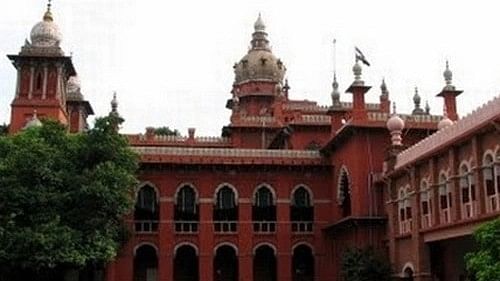
The Madras High Court.
Credit: PTI File Photo
The Madras High Court on Saturday ruled that one's spiritual orientation is also included under the right to privacy just like sexual and gender orientation.
According to a report by the Times of India, the HC allowed a man to roll over the banana leaves (angapradakshanam) which are left out by the devotees after having food at a religious place in the Karur district of Tamil Nadu.
The HC termed the man's belief—rolling over banana leaves left behind by devotees having food at a place of worship will bring him spiritual benefit—his spiritual orientation.
According to TOI, Justice G R Swaminathan of the bench said, "It is open to a person to express this orientation in manner he deems fit. Of course, it should not affect rights and freedoms belonging to others. So long as this Rubicon is not crossed, it is not to the state or courts to impinge on one's action."
The HC's ruling came in connection to a petition filed by P Naveen Kumar, who happens to be a devotee of Sri Sadasiva Brahmendral. It is believed that Brahmendral had attained 'jeeva samaadhi' in Nerur village of the Karur district.
Brahmendral's devotees have been performing the roll-over for several decades on his samaadhi day.
According to TOI, the Madras HC had banned the practice in 2015 and had ordered authorities to not permit anyone to roll over banana leaves left after having meals.
Filling a petition, Kumar claimed that he had vowed to perform the roll-over on May 18, and that it was a 120-year-old ritual.
Acknowledging his petition, Justice Swaminanathan agreed and said that the petitioner has a guaranteed fundamental right under the Article 25(1) of the Constitution to carry out his religious vows.
According to TOI, he also said, "Article 19(1)(d) states that all citizens shall have the right to move freely throughout India. This right is subject to only reasonable restrictions envisaged under article 19(5). Right to move cannot be confined to walking or vehicular transportation. It would include angapradakshanam also."
Justice Swaminathan also declared the HC's 2015 ban order on the roll-over 'null and void' noting that the order was passed without hearing the necessary parties.